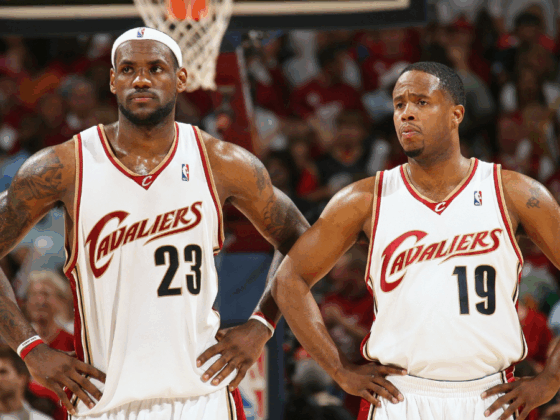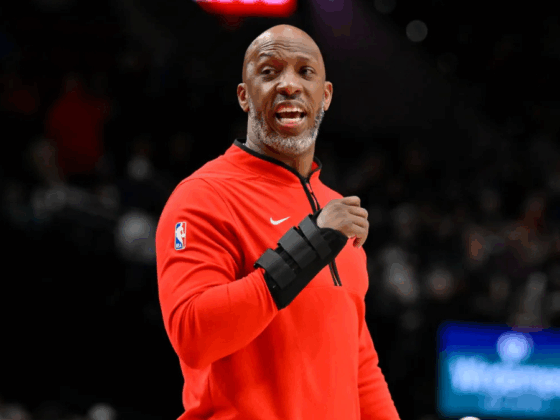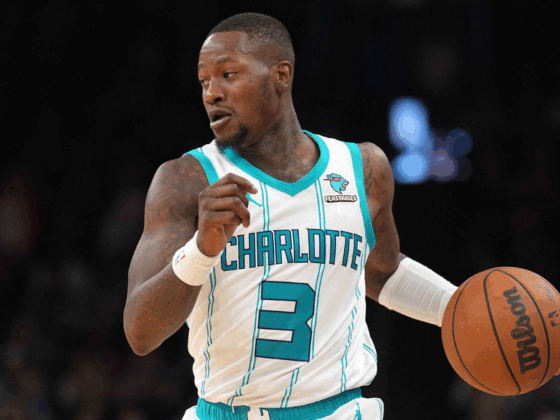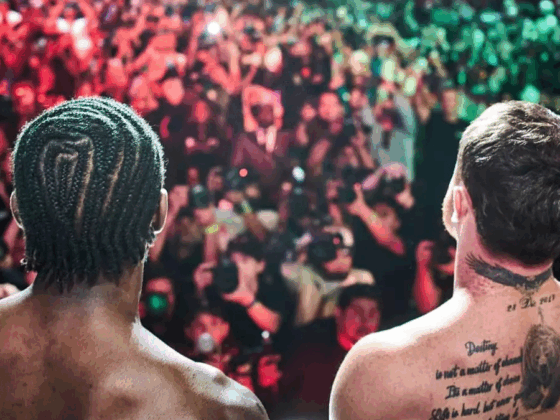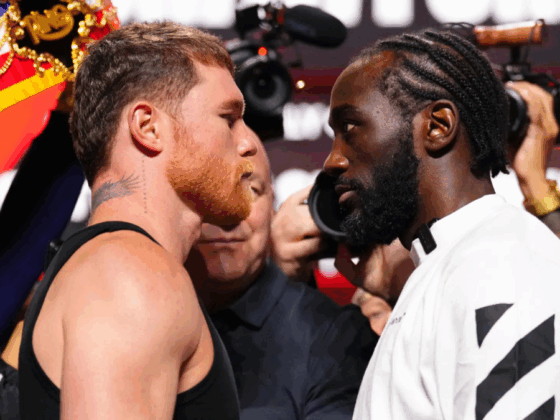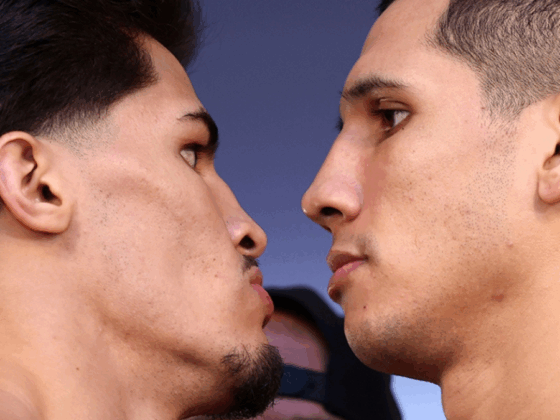
Andre Iguodala isn’t the big name he once used to be. His first eight years in the NBA, all with the Philadelphia 76ers, showcased precisely how special of a talent he was, culminating with an NBA All-Star appearance his last year in Philly. After spending a season with the Denver Nuggets, Iguodala joined the Golden State Warriors the year before their dynasty truly began to take off. Now 34-years old, Iguodala is well past his prime, but he’s still an essential piece to the Warriors playoff runs despite being their fifth man.
After bumping knees with James Harden in Game 3 of the Western Conference Finals, Iguodala was forced to sit out the remainder of the series with what has been labeled as a left lateral leg contusion. His absence in games 4 through 7 of the NBA Western Conference Finals against the Houston Rockets clearly hindered his team’s ability to be as versatile as possible, something that is essential when going face-to-face with a team who constantly hunt mismatches much like the Rockets did.
But just how important is Iguodala to the Warriors operation? Golden State didn’t come one half of basketball away from losing the series solely because Iguodala was absent, that had way more to do with Chris Paul’s injury. But who’s to say that the series would have even gotten to a Game 7 had Iguodala not been injured? The Warriors still employ three of the best shooters to ever play in the NBA, two of them being the second and third best players in the entire league, along with one of the best overall defenders in the NBA. The “Hamptons 5” death lineup is nothing without Iguodala, but it shouldn’t matter when taking a look at the four players that surround him in that lineup.
Iguodala missed Game 1 of the NBA Finals with the same leg contusion injury and it is still unclear when exactly he will be returning. The Warriors toppled the Cavaliers in overtime, 124-114. It is being reported that the wingman will return to the team at some time during the 2018 NBA Finals.
In that Game 1, the Warriors sure could have used anything that would have aided them in at least trying to slow down LeBron James. James put up a playoff career-high 51 points on 19-31 shooting in Game 1 and the absence of Iguodala absolutely played a role in James executing one of the single most impressive Finals games ever. One of the reasons it was so impressive was due to how defenseless the Warriors looked when guarding him. Whether it was him constantly using on-ball screens to create mismatches with Steph Curry or simply driving one-on-one against Kevon Looney or Shaun Livingston, there was nothing anybody on the court could do to stop him. The only person that could have made his life the slightest bit more difficult was the Iguodala. The Warriors ultimately won Game 1 in overtime and essentially caused the Cavaliers to waste an all-time career game from one of the best players to ever live. Iguodala would have made life easier for Golden State and harder for James, but he wasn’t a necessity to winning.

Through the first two rounds of the NBA playoffs, the Warriors were statistically a better team with Iguodala on the floor and by a sizable margin. He boasted a net rating of 16.0, second highest among Golden State rotation players behind only Draymond Green, who sported a 20.2 net rating. In Iguodala’s three games against the Rockets, however, those numbers tell a different story. Iguodala’s net rating of minus-23.0 was second worst on the team, slightly better than David West’s, however, all three games ultimately ended as confusing blowouts, so it’s hard to tell exactly how impactful he was or wasn’t through that stat with such a small and unorthodox sample.
What the numbers do tell us is that the Warriors completely fell apart once Iguodala went out with the leg injury. Through the first three games of the WCF, the Warriors averaged 116.7 points per game, shot 50.2 percent from the field and 36.8 percent from three, averaged 21.7 assists, 10.7 turnovers, 8.7 steals, and 5.0 blocks per game. The Warriors were 2-1 in those three games, including a 41-point dismantling of the Rockets in Game 3.
Games 4 and 5, however, were the complete opposite of Warriors basketball. The efficiency and stabilization of the team disappeared after Iguodala went out. The team’s averages took a nosedive, dropping to 93.0 points per game while shooting 41.6 percent from the field and 35.8 percent from three. Their assists went down to 16.0 per game and their turnovers spiked to 17.0 per game. The team also averaged 2.2 fewer steals and 3.0 fewer blocks in games 4 and 5 without Iguodala. The Warriors went 0-2 in those games before taking advantage of a missing Chris Paul and pulling away in the second halves of games 6 and 7.
What Iguodala brings to the Warriors is someone who can defend practically every position. He’s similar to his teammate Draymond Green in that aspect and missing him was a huge hit as to how the Warriors defended Harden/Paul and it’s going to be an even bigger hit when the Warriors have to guard LeBron James. His minutes have been spread out amongst Shaun Livingston, Kevon Looney, and Jordan Bell, who are all capable switching defenders, but nothing like Iguodala on either side of the ball. Those three were never going to be viable replacements for Iguodala on defense and none of them can match his playmaking on offense.

While Iguodala is an excellent role player, there’s no reason the Warriors should be considerably worse without him. They definitely shouldn’t have been as bad as the numbers indicated in games 4 and 5. Even though Paul was out, the Warriors exploded in the second half of both Game 6 and 7, shooting lights out and placing a stranglehold on the Rockets defensively. Some of that had to do with the Rockets missing an NBA-record 27-straight three in Game 7, but, for the most part, it was because Steph Curry and Kevin Durant were just too damn good for a limited Rockets team and an exhausted Harden.
The Warriors overmatch the Cavaliers in every single aspect of the game except for not having LeBron James on their team (which is substantial) and Iguodala’s absence (or presence) shouldn’t influence the outcome of this series in any drastic way. James averaged 33.6 points on 56.4 percent shooting in the Finals last season, 29.7 points on 49.4 percent shooting in the 2016 Finals, and 35.8 points on 39.8 percent shooting in the 2015 Finals. Iguodala is a great defender, but he’s no “LeBron stopper” (which isn’t even a real thing), and there has been no evidence that would lead anyone to believe this Finals will be any different if Iguodala were to be guarding James.
But then there are stats such as this one that makes you turn your head.
Cavaliers’ net rating has been awesome with LeBron James on and Andre Iguodala off, bad with LeBron on and Iguodala on in the last three NBA Finals pic.twitter.com/9nBcMKqoja
— Dan Feldman Burner Account (@DanFeldmanNBA) May 30, 2018
Iguodala may not be able to stop James from scoring 30-plus points, but the effect he has on the team’s overall defense helps ensure that the other Cavaliers aren’t going to catch fire. Having Iguodala allows the Warriors to switch everything, something the Celtics tried to employ against the Cavaliers but without the caliber of players that Golden State has. His absence will surely hurt the Warriors in a few areas, but not enough for it to swing the series in favor of the Cavaliers.
If a 51-point game from LeBron James isn’t enough to take down the Warriors without Iguodala, then what else is there for the Cavaliers to do? While Iguodala may not be the heart and soul of this team, he still could have been extremely helpful in guarding James despite the fact that, in the end, it didn’t matter if he was injured or not.

